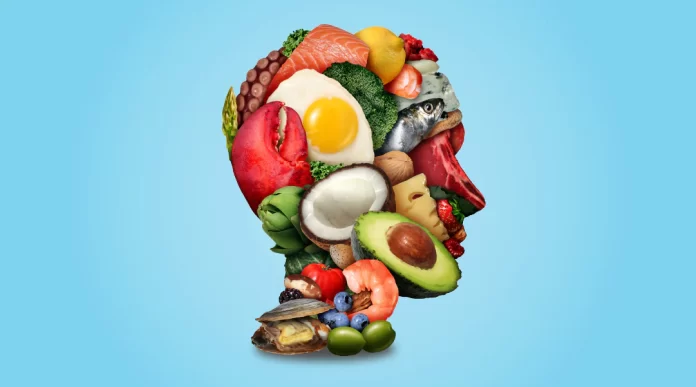Nutrition is the study of how food affects the body’s growth, maintenance, and repair. It is the foundation of good health and is essential for a long and healthy life. A good diet is essential for maintaining good health, and the benefits of proper nutrition go beyond the basic requirements of survival.
What is Nutrition?
Nutrition is the study of the interaction between food and the human body. It is concerned with how the body utilizes food to provide energy and nutrients, and how food affects the growth and maintenance of the body. Nutrition includes the study of macro-nutrients, such as carbohydrates, proteins, and fats, as well as micronutrients, such as vitamins and minerals.
The Importance of Nutrition
Proper nutrition is essential for maintaining good health. A well-balanced diet provides the body with the nutrients it needs to function properly. A diet that is high in calories, saturated fats, and sugars can lead to obesity, heart disease, and other chronic health conditions. In contrast, a diet that is rich in whole foods, fruits, and vegetables can help prevent disease and promote longevity.
Macro-Nutrients
Macronutrients are nutrients that the body requires in large quantities. They include carbohydrates, proteins, and fats.
Carbohydrates
Carbohydrates are the body’s primary source of energy. They are found in a variety of foods, including fruits, vegetables, grains, and dairy products. Carbohydrates are classified as simple or complex, depending on their chemical structure.
Proteins
Proteins are essential for building and repairing tissues in the body. They are found in a variety of foods, including meat, poultry, fish, beans, and dairy products. Proteins are made up of amino acids, which are the building blocks of proteins.
Fats
Fats are essential for the absorption of vitamins and minerals, as well as the production of hormones. They are found in a variety of foods, including nuts, seeds, oils, and fatty fish. Fats are classified as saturated, unsaturated, or trans, depending on their chemical structure.
Micro-Nutrients
Micronutrients are nutrients that the body requires in small quantities. They include vitamins and minerals.
Vitamins
Vitamins are essential for a variety of bodily functions, including the metabolism of nutrients, the production of hormones, and the maintenance of healthy skin, hair, and nails. They are found in a variety of foods, including fruits, vegetables, and dairy products.
Minerals
Minerals are essential for a variety of bodily functions, including the production of hormones, the maintenance of healthy bones and teeth, and the regulation of the body’s fluid balance. They are found in a variety of foods, including nuts, seeds, and leafy green vegetables.
The Science of Nutrient Absorption
The body must break down food into its component nutrients before it can absorb them. This process begins in the mouth, where food is chewed and mixed with saliva. The stomach then secretes acid and enzymes that break down the food further.
The small intestine is where the majority of nutrient absorption occurs. Nutrients are absorbed into the bloodstream through the walls of the small intestine and are transported to the liver, where they are processed and distributed to the rest of the body.
Nutrition and Disease Prevention
Proper nutrition is essential for preventing chronic diseases, such as heart disease, diabetes, and cancer. A diet that is rich in whole foods, fruits, and vegetables can help reduce the risk of these diseases. In contrast, a diet that is high in processed foods, saturated fats, and sugars can increase the risk of these diseases.
The Benefits of a Balanced Diet
A balanced diet provides the body with the nutrients it needs to function properly. Some of the benefits of a balanced diet include:
Improved Mood
Studies have shown that a diet that is rich in whole foods, fruits, and vegetables can help improve mood and reduce symptoms of depression.
Increased Energy
A diet that is rich in whole foods and complex carbohydrates can provide the body with sustained energy throughout the day.
Improved Digestion
A diet that is rich in fiber can help improve digestion and reduce the risk of constipation and other digestive disorders.
Healthy Weight Management
A diet that is well-balanced and provides the body with the nutrients it needs can help maintain a healthy weight and reduce the risk of obesity.
Conclusion
Proper nutrition is essential for maintaining good health and preventing chronic diseases. A well-balanced diet that includes a variety of whole foods, fruits, and vegetables can provide the body with the nutrients it needs to function properly. By understanding the science of nutrition, we can make informed choices about the foods we eat and promote a healthy lifestyle.
FAQs
- What are some examples of whole foods?
Some examples of whole foods include fruits, vegetables, whole grains, and legumes.
- How much protein do I need in my diet?
The amount of protein you need depends on your age, sex, and activity level. In general, adults need about 0.8 grams of protein per kilogram of body weight per day.
- What are some good sources of healthy fats?
Some good sources of healthy fats include nuts, seeds, avocados, and fatty fish.
- How can I improve my digestion?
You can improve your digestion by eating a diet that is rich in fiber and staying hydrated.
- What are some common chronic diseases that can be prevented by proper nutrition?
Some common chronic diseases that can be prevented by proper nutrition include heart disease, diabetes, and cancer.
